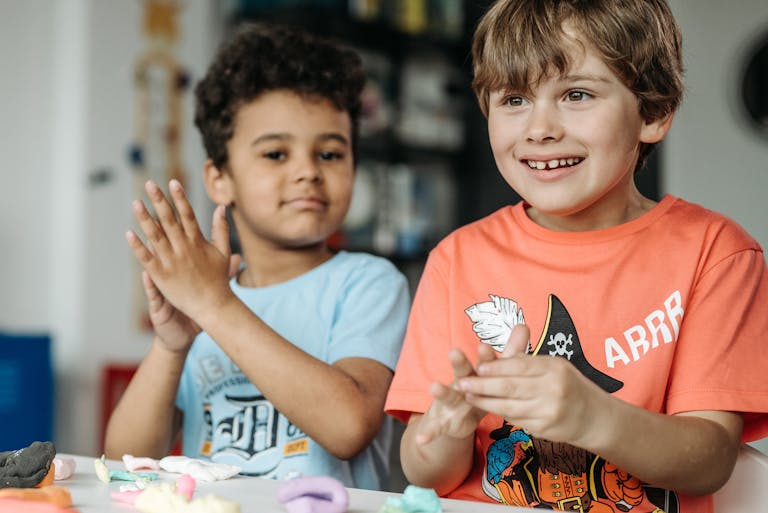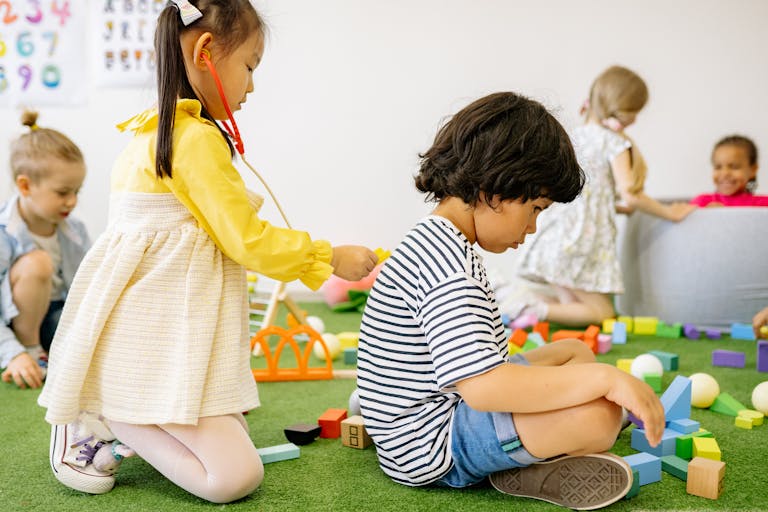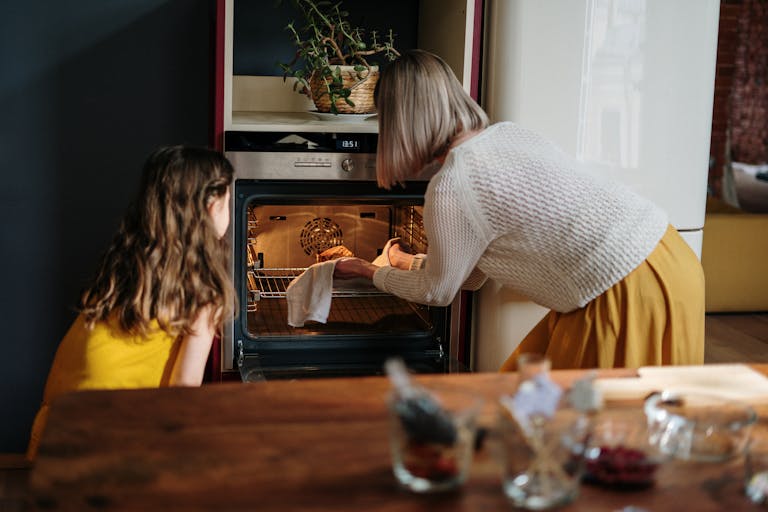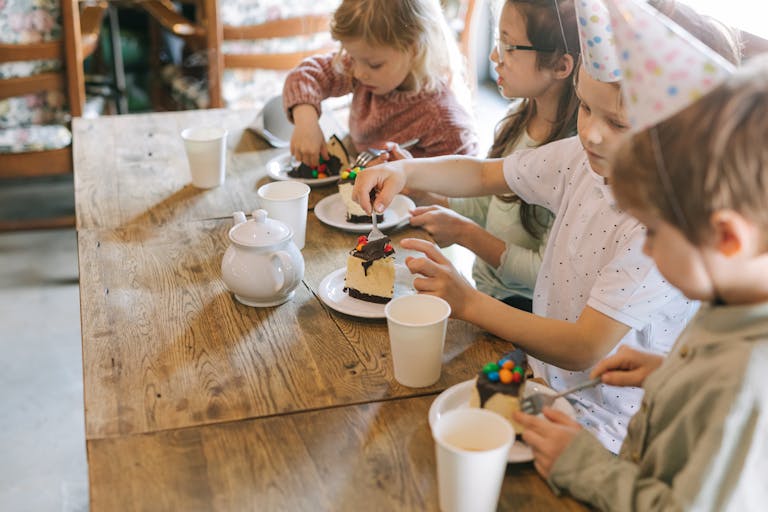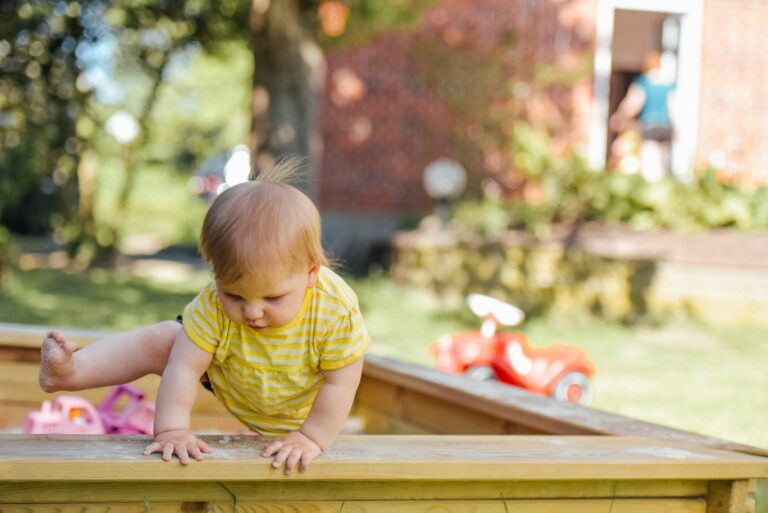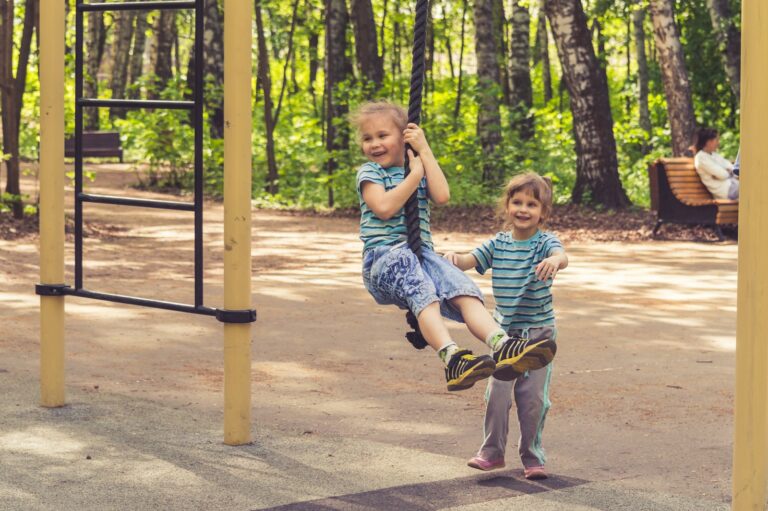Why Building Relationships in Early Childhood Shapes a Child’s Future
Strong relationships in early childhood are the foundation of a child’s development. Building relationships in early childhood is essential. In my experience with young children, these early bonds help build trust, encourage communication, and support emotional growth.
When children feel truly supported, they become more confident, learn more easily, and develop stronger social skills. By nurturing these connections from the start, I believe we help set children up for lasting success in both school and life through building relationships in early childhood.
Table of Contents
Understanding Early Childhood Relationships
I’ve seen firsthand how building relationships in early childhood shapes everything from a child’s confidence to their ability to connect with others. I remember one of my preschoolers who would light up every morning when my co-teacher greeted him with a warm smile. That simple, consistent moment of connection made him feel safe, supported, and ready to take on the day.
Building relationships in early childhood is fundamental for their future development. It influences their ability to form connections throughout their lives.
Consistent support in building relationships in early childhood leads to better emotional health and social interactions as they grow.
These early bonds—whether with parents, teachers, or even a favorite playmate—lay the foundation for personal, emotional, and social growth. When children feel valued and loved, they begin to understand how to trust, communicate, and build relationships of their own. It’s in these everyday moments that children learn how to navigate the world around them through building relationships in early childhood.
Types of Relationships in Early Childhood
Early childhood relationships come in various forms, each playing a unique role in a child’s growth:
- Parent-Child Relationships: This is often the first relationship children experience. Parents provide love, care, and security, shaping their child’s sense of trust. A responsive, attentive parent builds a strong bond that fosters self-esteem and resilience.
- Teacher-Student Relationships: Teachers are caregivers in their own right, especially in early education settings. A warm, supportive teacher can help children feel safe in their new environment and encourage curiosity. These relationships also influence early learning and emotional control.
- Peer Relationships: Friendships teach kids about cooperation, empathy, and problem-solving. Playing with peers allows children to practice sharing, taking turns, and resolving conflicts, all essential life skills. Strong peer connections also improve social confidence as children grow.
By nurturing these connections, adults lay the groundwork for healthy interactions and emotional well-being.
Developmental Theories Supporting Relationships
Building relationships in early childhood fosters a sense of belonging that is crucial for developing self-esteem.
Through building relationships in early childhood, children learn to navigate their emotions and understand social cues.
Research has shown that relationships are pivotal to a child’s development. Developmental theories provide insight into why relationships matter:
- Attachment Theory: Psychologist John Bowlby emphasized that secure relationships with caregivers are essential for emotional development. When children trust that their needs will be met, they feel safe exploring the world.
- Erikson’s Stages of Development: Erik Erikson highlighted the importance of trust in early relationships. Positive interactions with caregivers during infancy lead to a sense of security and confidence.
- Sociocultural Theory: Lev Vygotsky’s work shows how social interactions shape learning. Relationships serve as the foundation for acquiring knowledge and developing skills.
Each of these theories underlines a simple truth: supportive relationships create a launchpad for healthy growth.
As we continue to learn more about early childhood relationships, it’s clear that fostering these connections is one of the most impactful ways to support a child’s journey.
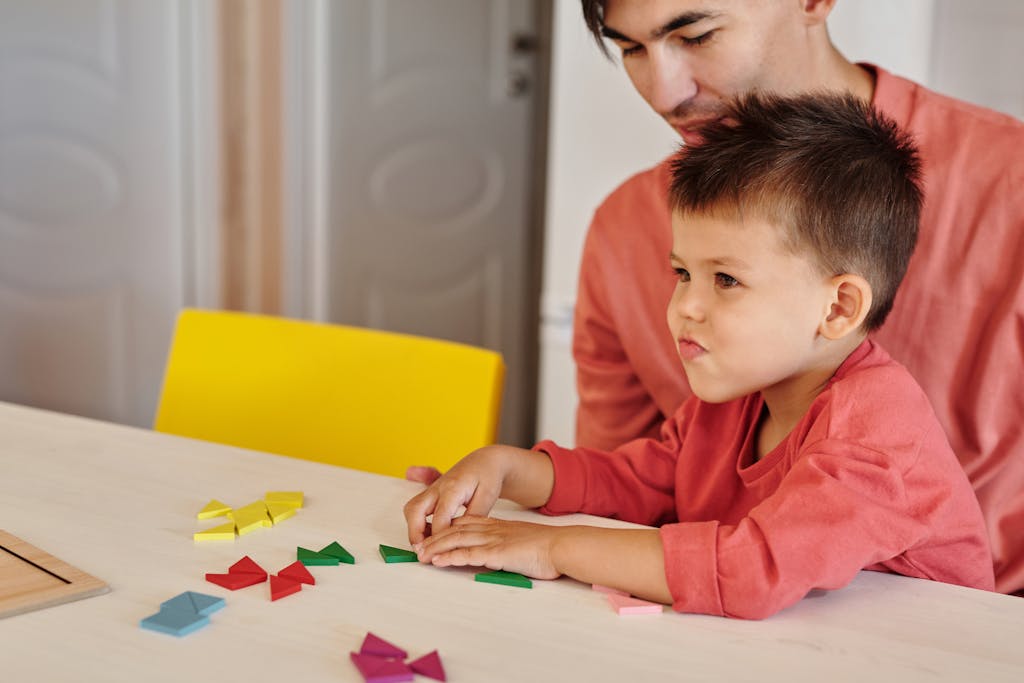
Benefits of Building Relationships
Building relationships during early childhood is more than just creating connections, it’s about setting the stage for a child’s emotional, social, and intellectual growth. The bonds children form during these years create a foundation for their future development, influencing how they interact with the world.
Ultimately, building relationships in early childhood is the groundwork for cooperative play and teamwork in later years.
Emotional Development: How Relationships Contribute to Emotional Growth and Stability
By understanding the importance of building relationships in early childhood, we can better support our children’s emotional and social development.
Building relationships in early childhood helps cultivate an environment that nurtures curiosity and a love for learning.
Establishing strong building relationships in early childhood leads to long-lasting friendships and social skills that transcend age.
Children learn to navigate emotions through strong, healthy relationships. Having consistent support from caregivers allows kids to feel safe, understood, and valued. This emotional security becomes the bedrock for exploring and expressing feelings.
- Secure bonds with parents and caregivers help children identify emotions like happiness, sadness, or anger. They also learn that it’s okay to experience these feelings.
- Positive interactions teach emotional regulation. For instance, when a trusted adult helps a child calm down during a tantrum, it teaches how to handle frustration.
Want to make stronger bonds with your preschooler? Simple routines, such as reading bedtime stories, can help kids feel loved and create emotional stability. Here are more ideas in Simple Ways to Bond and Build Strong Connections With Your Preschooler.
Social Skills Development: How Interactions in Relationships Help in Developing Social Skills
From sharing toys to group play, relationships are a practice field for essential social skills. These early interactions teach children how to connect with others and navigate group dynamics.
When we focus on building relationships in early childhood, we enable children to express their emotions in healthy ways.
- Relationships foster skills like working with others, listening, and resolving conflicts. For example, playing a game with peers teaches kids about taking turns and fairness.
- Kids also develop empathy when they see how their actions affect others. A simple “thank you” or “sorry” can go a long way in teaching kindness.
Strong building relationships in early childhood can mitigate future challenges in their social interactions.
Building relationships in early childhood is an investment in their future mental health and overall well-being.
Social play, such as cooperative activities, nurtures these skills even further. For practical tips on how to boost social growth, check out Building Strong Social Skills Through Cooperative Play.
Cognitive Growth: The Impact of Relationships on Cognitive Skills and Learning
Did you know that relationships can also enhance brain development? Positive interactions stimulate a child’s mind, helping them explore, question, and solve problems.
- Conversations with caregivers encourage language development. When adults respond to a toddler’s babbling or answer their “why” questions, they’re creating opportunities for learning.
- Secure relationships also motivate curiosity and exploration. A child who feels supported is more likely to try new activities and persevere through challenges.
Studies show that warm, loving connections form a launchpad for learning. For more on how relationships drive development, you might find Strategies for Developing Positive Relationships with Children insightful.
By supporting emotional, social, and cognitive growth, these early relationships prepare children not only for school but also for life. It’s in these interactions that the seeds of confidence, connection, and curiosity are planted.
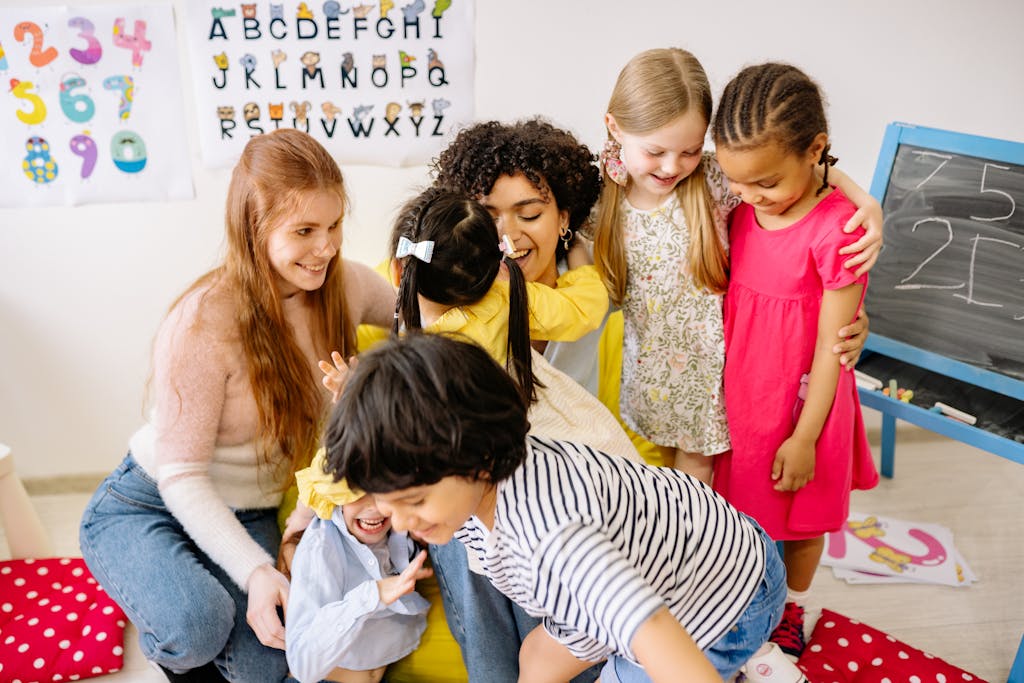
The Role of Caregivers and Educators
Caregivers and educators play a pivotal role in the early years of a child’s development. They do more than just teach, they create environments where children feel supported, valued, and safe.
Strong relationships between adults and children don’t just happen overnight; they grow through intentional actions, everyday moments, and positive modeling.
Creating a Supportive Environment
Children thrive in a space where they feel secure and loved. Caregivers and educators can create such environments by being present, responsive, and thoughtful in their interactions. But how can we make this happen in practice?
- Establish routines: Predictable schedules help kids feel safe. Whether it’s a consistent bedtime or circle time at school, routines provide structure and stability.
- Provide attentive care: Genuine, one-on-one time with a child can foster trust. Listen closely, respond to their needs, and give undivided attention.
- Introduce open-ended activities: Activities that allow exploration, like building blocks or imaginative play, build a child’s curiosity while creating teachable moments. Not sure where to start? Check out 7 Hands-On Activities That Blend Play and Learning for inspiration.
- Incorporate diversity: Include books, toys, and activities that celebrate different cultures. Representation teaches kids to respect and embrace differences.
A supportive environment isn’t about flashy toys or elaborate setups. It’s about creating a nurturing space where kids feel seen and cared for every single day.
Modeling Healthy Relationships
Children watch everything adults do, especially in social situations. Acting as role models, caregivers, and educators must exhibit behaviors they want kids to emulate. After all, children learn more from what we do than what we say.
- Practice kindness and respect: Simple acts like saying “please,” “thank you,” or actively listening during conversations show children how positive behaviors look in action.
- Handle conflicts calmly: Disagreements are bound to happen, but managing them in a peaceful and respectful way sets the tone for healthy problem-solving.
- Include collaborative efforts: You don’t have to go it alone. Collaborating with families enhances communication between home and school. Working together helps reinforce consistent messaging for kids.
Remember, even small gestures can leave a big impression. A warm smile or an encouraging word goes a long way in teaching children how to nurture their own connections with others.
By focusing on these strategies, caregivers and educators build more than just skills; they lay the foundation for trust, empathy, and cooperation, essentials for a child’s lifelong success.
Challenges in Building Relationships
Developing relationships in early childhood is essential, but it doesn’t come without hurdles. These challenges can make it difficult to form meaningful, healthy connections. Tackling them head-on can lead to deeper bonds and stronger networks for children and adults alike.
Communication Barriers
Communication is the cornerstone of any relationship, yet it’s often the most common barrier. Miscommunication can happen easily, especially when working with young children who are just beginning to develop their language skills and abilities to express emotions.
Some key issues include:
- Limited Vocabulary: Young children may struggle to articulate their feelings and needs, leading to frustration for both the child and caregiver.
- Non-Verbal Cues: Misreading gestures, facial expressions, or tones can result in misunderstandings.
- Overlapping Expectations: Adults and children may have different views on what communicates love, respect, or support.
For instance, when a toddler throws a tantrum, they aren’t trying to misbehave. They’re often unable to explain their emotions in words, which complicates how caregivers respond. Helping children build their vocabulary for feelings is a step toward overcoming this challenge.
Over time, improved communication strengthens relationships and helps children develop trust and security. But without addressing these barriers early on, frustration can cause unnecessary strain.
Cultural Differences: Discuss How Cultural Backgrounds Can Affect Relationship Dynamics
Building relationships in early childhood should be accompanied by teaching conflict resolution skills to handle disagreements effectively.
Challenges encountered in building relationships in early childhood can be overcome with patience and understanding.
Cultural diversity enriches relationships, but it can also introduce unique challenges. Different families and communities bring their own beliefs, values, and practices into the mix, which may not always align with others’ perspectives.
Here are some examples of how culture might play a role:
- Parenting Styles: Some cultures prioritize authority and structure, while others emphasize independence and child-led learning.
- Expression of Emotions: In some families, openly sharing feelings is encouraged, but in others, reserved behavior is expected.
- Traditions and Customs: Cultural norms around holidays, food, or daily routines can differ and may unintentionally cause conflict or misunderstanding.
For educators and caregivers, these differences can create challenges when working with children from diverse backgrounds. But these moments are opportunities to teach inclusivity. By embracing various traditions and values, you can create an environment that respects everyone.
Appreciating cultural differences isn’t about finding a “one-size-fits-all” solution. Instead, it’s about nurturing understanding and celebrating what makes each family and community unique. This approach helps bridge gaps and fosters stronger, more inclusive relationships.
By tackling these challenges directly, we create a foundation where communication and cultural diversity thrive in harmony, benefiting children and their social environments.
What We Know!
Building relationships in early childhood creates a strong foundation for emotional, social, and cognitive growth. These connections help children feel secure, valued, and confident as they navigate their early years. Parents, teachers, and caregivers hold the power to shape these bonds through everyday interactions.
Make relationship-building a priority. Small, consistent actions like listening, showing kindness, and creating supportive environments can make a lasting impact.
In conclusion, the essence of building relationships in early childhood is to nurture secure, trusting connections.
Building relationships in early childhood will pave the way for a more compassionate and connected generation.


